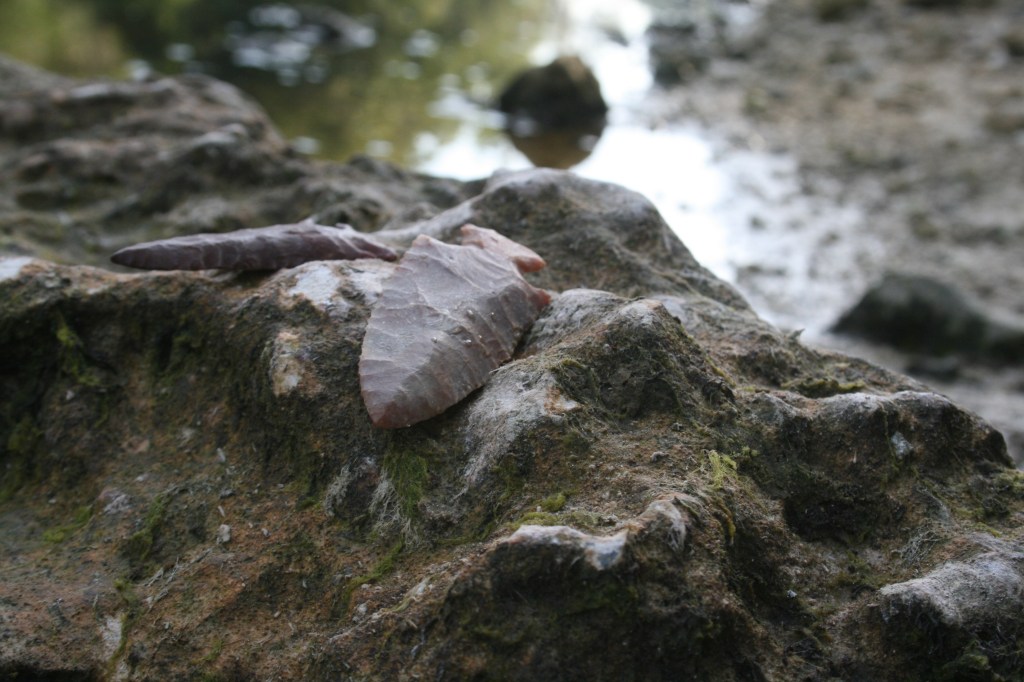Looting history
Published 3:59 pm Thursday, May 19, 2011

- Arrowheads on the Suwannee
For countless years divers have searched the pitch-black waters of the Suwannee River for remnants of the area’s most early inhabitants. Authorities warn that collecting Native American and prehistoric artifacts is an illegal activity that has the potential to negatively impact local river ecosystems and archaeological research.
Trending
And officials are cracking down on offenders. Two arrests were made in December after two people were discovered collecting artifacts at Little River Springs, Florida Fish and Wildlife Conservation Commission spokesperson Karen Parker said.
Last year, the agency made a total of 14 cases statewide. So far in 2011, the FWC has made five cases on illegal artifacts digging, four in Alachua County and one in Washington County.
“Archaeological sites consist of much more than the artifacts displayed in museums,” Parker said by email Wednesday.
The state’s view is that the artifacts are to be left alone – period.
“Also, the artifacts and sites are owned by the people of Florida, and cannot be studied or appreciated if they are removed,” said Florida Department of State Communications Director Chris Cate, who spoke in support of efforts by state archaeologists.
Those archaeologists, and others, piece together the past. When one piece is disturbed, such as an arrowhead or pottery shard, the entire puzzle can become compromised. Parker said where the artifacts lay in relation to others in a site provide clues for archaeologists to follow that can help determine how the object was used, made and lost by Florida’s ancestors. Parker added that the fragile surroundings can sometimes provide more information than the artifact itself.
Trending
“When artifacts are moved, or the site disrupted, the context is destroyed, and unlike a pot that can be glued back together, when context is destroyed it can never be recreated,” she said.
And, most of the artifacts found by amateurs are lost forever.
“Many of the artifacts removed from Florida rivers are sold on eBay and other internet sites, leaving the state for good,” said Cate. “Archaeologists and other members of the public have no opportunity to study or learn from these items. Our agency encourages preservation of artifacts and sites in place.”
It is illegal in Florida to dig for artifacts without the landowner’s permission and authorities do not take the matter lightly. On state-owned and controlled lands, which includes the submerged river bottom, the Division of Historical Resources and Bureau of Archaeological Research grants permission to conduct archaeological excavations to professionals. The removal of artifacts from state property is punishable with fines and either a first degree misdemeanor or third degree felony, depending on the circumstances, according to Florida Statutes. Digging on federal land also requires a permit, otherwise it is a felony offense, Parker said.
“Because our officers patrol state lands, they do come across people digging for artifacts. These people are then arrested. This is another way our officers help protect the natural resources of the state of Florida,” Parker said.
So why do artifact hunters take the risk? One incentive is money, according to Suwannee County Parks & Recreation Director Greg Scott.
“A good arrow will bring several thousand dollars,” he said. “There are some people that make a good living at it.”
Locally, officials say ‘professional’ artifact hunters tend to go to the parks – gear and bags for artifacts in hand – late at night or when there are no visitors. Some use underwater lights and other equipment to reveal artifacts hidden for centuries in the murky waters.
“They are getting pretty sneaky in how they do things,” Scott said.
He added that the environment can suffer at the hands of artifact hunters.
“Sometimes artifact hunters will dig under trees, which can undermine the tree and cause it to eventually fall into the water, and potentially fall on someone,” he said.
According to a University of Florida assessment of human impact on Florida’s water resources, many recreational areas are being “loved to death”. In other words, under managed recreational activities by too many tubers, canoers, swimmers, scuba divers, fossil hunters and boaters results in destroyed native vegetation and over-disturbed lake and river bottoms and wetlands.
Concerns expressed by readers on the Democrat’s Facebook page Wednesday revealed that artifact hunting is a touchy subject locally.
Billy Golightly said he feels the law is an example of government interference.
“If you’re in the middle of the park with an excavator, digging for buried treasure it’s one thing. If you find one laying on the top of the dirt from the rain and pick it up that’s another,” Golightly said. “It shouldn’t be illegal. It’s pretty ridiculous. In the name of protecting things so everyone can ‘enjoy’ them, it ends up no one can.”
However, any artifact found on state property, from fossils to arrowheads, must remain where they are found, according to state officials. Only happenstance or casual vertebrate fossils finds, or for the collection of invertebrate fossils (such as shellfish, coral, and sponges) and fossil shark teeth is permissible.
In 2004 and 2005, the state of Florida discontinued its Isolated Finds Program – in which the state allowed people to keep found artifacts in exchange for information about their discovery, such as arrowheads and pottery shards – after “it became clear that some artifacts were associated with human remains,” said Cate. “The American Indian tribes in Florida recommended that we discontinue the Isolated Finds Program at that time.”
The restrictions are not taken seriously by many though. In fact, there are numerous internet sites with displays of artifacts discovered at local parks and discussion boards describing the best locations in Suwannee County to find artifacts.
“People locally do it all the time,” said Sandy Preston Jones.
Not everyone feels that should remain the case, however.
“Artifact diving is better off illegal,” said Democrat reader Casey Topcik. “Artifacts are a thing of the past, and we have a dire need to focus on the present state of our planet. With so many, many things disrupting our planet’s ecosystem, if we can prevent these things one by one, we might have a chance to save the future of life,” she said. “Water life faces some of the biggest threats. Water pollution, overfishing, boating, building, drilling, digging – the list goes on. This artifact digging is most definitely destroying habitat, stirring up the underwater ecosystem and harming the basis of life that thrives at bottom.”
To report a violation to FWC call: 1-888-404-3922. Callers can remain anonymous and may be eligible for a reward.





